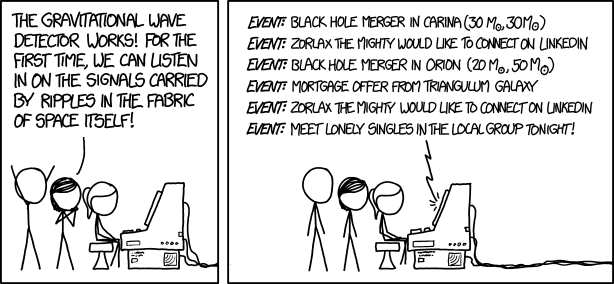Sounds like you're building a bit of "damned if they do, damned if they don't" argument to me.
"You spent all that money and didn't find anything? what a waste!"
"You spent all that money and immediately found something? Sounds fishy to me!"
First of all, the thing's been operational for almost 15 years, that's hardly "immediately found something."
But as far as I'm concerned, it's fine if they never do. Conclusive null result means we learned something about general relativity doesn't fit observations and we have to go back to square one. That means more experiments, more observations, more calculations and better models are needed. That also means a lot of the EXISTING observations and EXISTING models are wrong in some fundamental way and need to be reexamined.
Aside from sandbagging the careers of all the people who made those earlier observations and the models based on them, that also tags your $650 million investment with the label "Experiment shows we know LESS than we thought we did. More experiments needed (please give us more money)."
Confirmation bias is a well-recognized effect: when the researcher has a personal investment in the outcome, he tends to skew the results to get the outcome he wants to see. So imagine you're the scientist -- not a scientist, but THE scientist -- who gets the job of crunching the numbers from the latest LIGO run. You're part of a committee that has close to 1000 scientists on it, and every single one of them want to see some results. Some of them want it more badly than others. Some are putting on more pressure than others. And some of their investors are wondering if it's really worth funding the next layer of improvements on a project that has become your main source of income on the way to retirement. The results in front of you... pretty exciting, but sketchy. Not quite conclusive, but close; they indicate SOMETHING, but it's hard to say what.
Do you:
a) Tell a consortium of 1000 of your fellow scientists plus their increasingly antsy/annoying investors that this latest run is actually nothing special or
b) Find something in the data -- ANYTHING that stands out -- and massage the numbers a little until they give everybody some good news.
Confirmation bias is pressure towards option b). And of course, everyone knows that Einstein Was Right, everyone knows Gravity Waves are real, so even if THESE results aren't legit, the next one probably will be, AND we'll get funding for the upgrades because of this so it's all good. Results are confirmed, no one gets shitcanned, science marches on, everyone's happy.
How do you prove the existence of unicorns? Spend a billion dollars studying them. I could prove that Jesus masturbated left handed if you gave me a big enough research grant.
I'm not actually disputing the results here because at this point it's impossible to know either way. That's actually my point: the big-budget science projects don't seem to have any meaningful controls for massive institutional confirmation bias; they are guaranteed to find what they were CREATED to find because their managers will have to answer some difficult questions if they don't.




